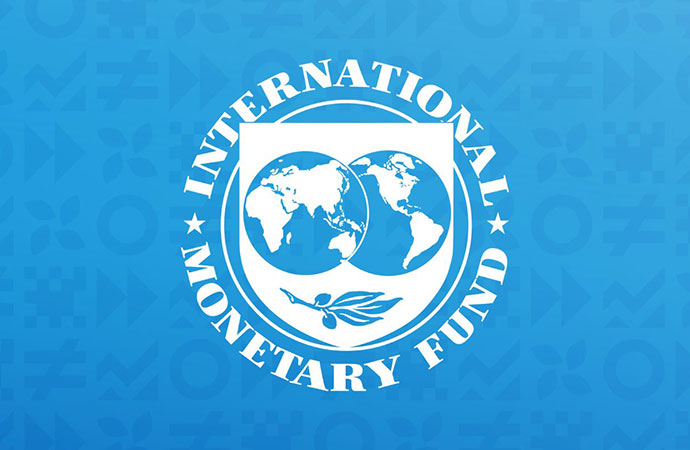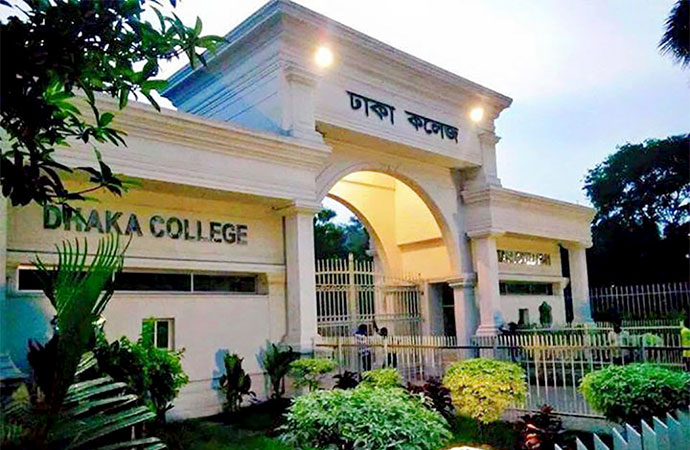Nation this week

Bangladesh is set to adopt a more flexible exchange rate regime to fulfil conditions tied to a $4.7 billion International Monetary Fund (IMF) loan programme, which will likely enable the country to receive $1.3 billion held up in the fourth and fifth tranches. In February of this year, the Bangladesh Bank governor Ahsan H. Mansur had said the central bank was not moving to a free-floating exchange rate regime to "avoid any speculative role" by foreign currency market aggregators.
The latest decision thus came as a surprise to many. Bangladesh Bank said they have initiated strong vigilance to keep the dollar prices close to the price fixed by the central bank. A new fund has been formed with USD 500 million from the reserves, to meet demand in case of any emergency. In a virtual press conference from Dubai on Wednesday, Dr Mansur said "Market-based price doesn't mean that dollars could be sold at any price. The dollar prices have to be fixed reasonably depending on our supply and forecast."
The interim government created two new divisions under the Finance Ministry by dissolving the National Board of Revenue, with a view to modernising tax administration and boosting revenue collection. The government promulgated an ordinance, approved by President Mohammed Sahabuddin and signed by law secretary Hafiz Ahmed Chowdhury, to this effect. In the NBR's place, there will now be a 'Revenue Policy Division' and 'Revenue Administration Division' - in keeping with a key reform encouraged by the International Monetary Fund to separate tax policy from administration.
The advisory council approved the draft of the Revenue Policy and Revenue Management Ordinance, 2025 on April 17. That sparked a wave of protests among the NBR officials, but finance adviser Salehuddin Ahmed this week said they have nothing to worry about regarding the creation of the two divisions. According to the ordinance, the policy division will design tax laws, set rates, and oversee international tax treaties. In contrast, the management division will handle law enforcement, audits, and compliance for income tax, VAT, and customs.
India's Border Security Force (BSF) pushed 60 more people-mostly women and children-into Bangladesh through two separate border points, according to security and law enforcement officials. The push-in took place on Wednesday (May 14) morning along the Uttar Shabazpur border in Borolekha upazila of Moulvibazar, where 44 people were pushed in, and the Atgram border in Sylhet's Zakiganj, that saw another 16 people pushed in. With this, the total number of people forcibly sent into Bangladesh through five border districts since May 4 has risen to 288.
The UP chairman of Uttar Shahbazpur in Borolekha mentioned that they have been temporarily housed at a local girls school. BGB-52 Commander Lieutenant Colonel Mehedi Hasan stated that they verified their identity. It has been confirmed that the individuals are Bangladeshi nationals, hailing from Nilphamari and Kurigram districts. Sylhet's Kanaighat police station officer-in-charge Abdul Awal confirmed that those pushed in through the Atgram border were all Bangladeshi citizens and claim to be from Bagerhat and Kurigram districts.
The government removed Barishal University Vice Chancellor Prof Shuchita Sharmin, Pro-VC Prof Golam Rabbani, and Treasurer Prof Mamun or Rashid amid weeks of student protests. The Secondary and Higher Education Division issued separate notifications in this regard, signed by Senior Assistant Secretary ASM Kashem. In another notification, Prof Mohammad Toufiq Alam of Rajshahi University was appointed as the interim vice chancellor of BU. The move comes amid student protests since early this month demanding the removal of the VC over alleged irregularities and administrative mismanagement.
Notably, within the last one and a half years, two VCs have joined and failed to remain in office for even a whole year. In the nascent history of this university, only two vice-chancellors - Professors Mohammad Harun-or-Rashid and Sadequl Arefin - have successfully completed their four-year terms.

























Leave a Comment
Recent Posts
The forensic clean up of the f ...
Much of the coverage centring the surge in Non Performing Loans (NPLs) ...
Hong Kong’s deadliest fire in ...
Hong Kong’s deadliest fire in decades left at least 44 people de ...
False document submission hurts genuine students’ ch ..
The Missing Ingredients for Peace in Palestine
Songs of Hyacinth Boats & Hands: Reading Conversatio ..
Executive Editor Julie Pace on why AP is standing fo ..